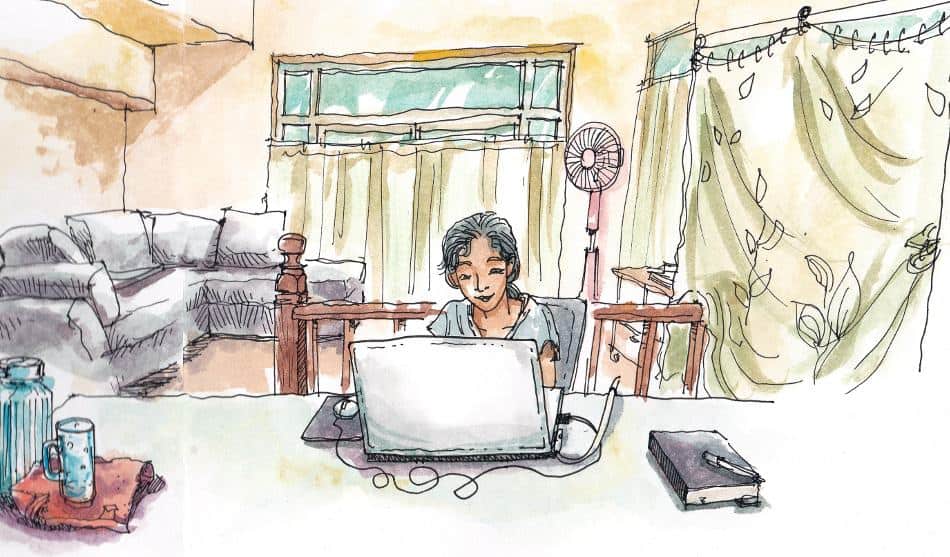
Working With Disabilities: Keys to Success


“It must be great to not have to go to work every day.” Uh-huh, right … because working from home isn’t the same as “going to work.” I find this mindset particularly annoying because working from home has probably saved my life. By which I mean it has drastically improved the quality of my life. You see, I have medical conditions that make it extremely difficult to handle the physical requirements of a full-time job outside the home. Several years ago, it became apparent that even part-time work was taking too big a toll on my health, and I was forced to find a solution that would let me continue to help support my family while allowing me to better manage the physical limitations of fibromyalgia and COPD (chronic obstructive pulmonary disease). My answer to working with disabilities turned out to be my dream job: freelance writing.
Thanks to online job boards, finding the job was the easy part. The harder part was finding a balance between managing my illnesses and managing my work flow, but I did it and you can too. Here’s how:
1. Understand Your Condition
Talk to your doctor and do your research. It’s important to know what your condition is, how it’s likely to progress and what the effective treatments or management protocols are. Work with your physicians to implement a self-care plan that works for you.
2. Know Your Limitations
Honestly assess what types of activities you are capable of and for how long. For instance, fibromyalgia makes it difficult to sit, stand or walk for extended periods of time which is why working jobs away from home is hard for me. I also experience periods of extreme exhaustion and bouts of severe pain that interfere with my ability to function both mentally and physically. Admitting that I have limited physical capabilities is difficult, but doing so has allowed me to focus on locating work I can actually excel at and enjoy.
3. Establish a Routine
Because my particular conditions come with good days and bad days (I never know what each day will bring), I find it helpful to have a flexible routine. On most mornings, I am sitting at my computer by 8:00 am, where I write for a several hours at a time with frequent breaks throughout the day. Between assignments, I do small chores like dishes or laundry and a series of simple stretches. If I have a flare up while working at home, I can easily postpone work to take medication or rest. Beginning each day with the same routine creates a sense of order and control that makes it easier to manage both work and disabilities.
4. Set Work Goals
While I may not know how my disabilities will affect me on a day-to-day basis, I can still set and achieve small goals each week. I am able to work on my own schedule and at my own pace, for the most part, so I choose to set weekly goals for the amount of work I want to complete (housework and writing). I then do as much each day as my conditions permit. Some days I don’t write at all and other days I write prolifically, and that’s okay because it allows me to accomplish work goals without compromising my health.
5. Set Personal Goals
These are goals related to quality of life. One of my ongoing personal goals is to create a balance that allows me to go at least 24 hours without pain medication, and another is to incorporate enough physical activity to decrease fibromyalgia symptoms, but not so much that my emergency inhaler use increases. The ability to control my work flow allows me to better achieve personal goals.
Successfully working with disabilities requires patience because very disability is different and each one presents its own unique challenges. My particular challenge is being perfectly fine one day and incapacitated the next. While I walk a very narrow line to ensure my good days outnumber my bad ones, I believe that, with proper medical assistance and with an honest analysis and acceptance of our conditions, our disabilities can lead us to accomplish things we never expected. After all, that’s how I became a disabled freelance writer working from home. I’d love to hear how you manage working from home with or without physical limitations, so leave your comments below.
- Understanding Different Styles of Writing - July 14, 2022
- The Point of Demonstrative Pronouns and Adjectives - June 9, 2022
- Zombie Nouns: What Are Nominalizations? - November 11, 2021


